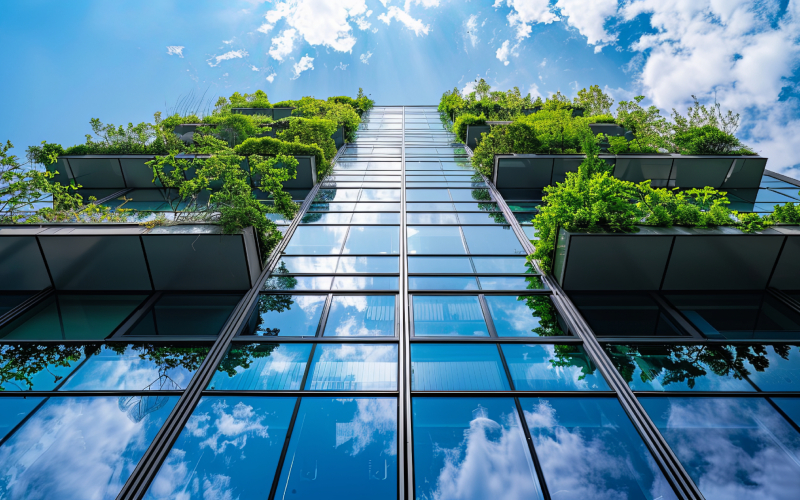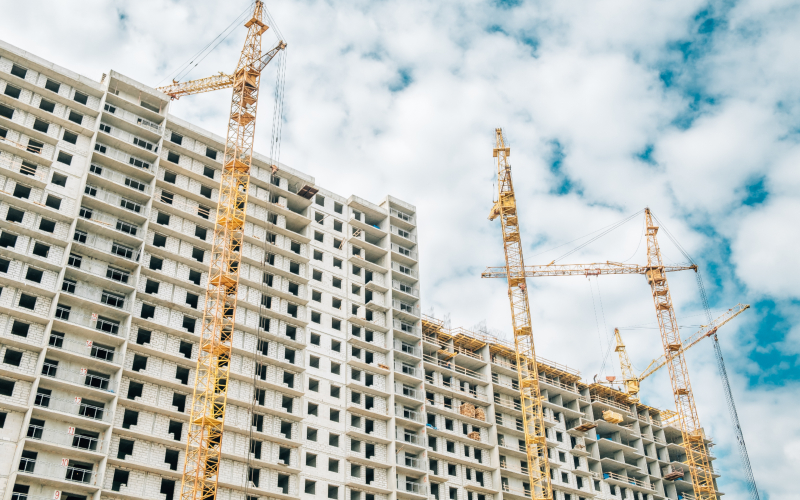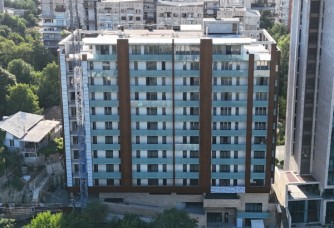
 en.dagvitove_nomeri_title
en.dagvitove_nomeri_title

Modern construction sector - new standards, technologies and sustainable development
In the modern world, construction is no longer just about building buildings - it has become a complex, multi-layered process associated with economic, environmental and technological challenges. The pace of urbanization, climate change, energy shortages and growing population demands are forcing the construction sector to introduce new standards.
Today, the construction industry is at a completely new stage of development. Leading countries are focusing maximum attention on the introduction of environmentally friendly, energy-efficient and technologically progressive approaches, which will create a safe, sustainable and efficient urban environment in the future.
Sustainability - the basis of green construction
Sustainability has become the cornerstone of modern construction. Green architecture implies:
- Rational use of natural resources;
- Use of environmentally friendly, recyclable materials;
- Minimal impact on the environment;
- Energy-efficient systems and the transition to renewable energy.
One of the most important regulations of the European Union - the Energy Performance of Buildings Directive (EPBD) - aims to improve the energy efficiency of buildings and reduce CO₂ emissions. From 2020, new buildings in the European Union must meet the zero-energy building standard, which means that they consume almost no external energy and are largely based on renewable sources.
Energy-efficient construction - quality and economy in one space
The intelligent use of energy in the construction process is not only environmentally important, but also economically. Modern standards require the use of materials and engineering solutions that:
- reduce energy loss;
- provide thermal insulation;
- are integrated with solar panels, heat pumps and other alternative sources.
Within the framework of the EU Green Deal, building renovation and new construction are considered one of the key areas to reduce greenhouse gas emissions by 2050 and completely transition the sector to a low-emission model.

Recycling materials - according to the principles of the circular economy
The construction sector is one of the largest producers of waste. Therefore, recycling and reuse of materials is an integral part of the modern standard.
Scandinavian countries are leading in this direction - their construction industry is already moving to a circular economy model, where the share of secondary and renewable materials in the construction process is increasing every year.
The EU Waste Framework Directive aimed to recycle 70% of construction waste by 2020, which became a turning point in the policy and industry of many countries.
Technologies and automation - the era of smart construction
A technological revolution has already begun in the construction sector. Building Information Modelling (BIM) - building information modelling - allows:
- to create a complete digital model of a building;
- to assess the energy efficiency of the structure;
- to introduce optimal management of time, resources and safety;
- Reduce the risk of errors and improve project management.
BIM is already a mandatory standard in many countries - for example, in the UK for public projects since 2016. In the US, it is actively used in both private and public infrastructure projects.
Artificial Intelligence and Automation - a mechanism for digital transformation
The integration of artificial intelligence and automation in the construction sector increases efficiency and reduces risks. AI is used:
- In safety monitoring;
- In data analysis and risk assessment;
- In project management - forecasting deadlines, budget planning, resource coordination.
Automated and semi-automated technologies reduce physical workload, increase labor productivity and ensure stable quality.

Retraining the workforce - the future of professional resources
Technological progress automatically creates new demands on human resources. Success in the modern construction sector requires:
- Regular retraining of the workforce;
- Improving vocational education standards;
- Strengthening safety knowledge;
- Training in the use of innovative tools.
In this direction, leading countries are investing in vocational schools, retraining programs and digital platforms.
Modern construction is much more than just erecting walls. It requires intelligent solutions, environmental responsibility and technological intelligence. If countries and developers systematically implement these approaches, the construction industry will not only become a driver of economic growth, but also a path to a green and safe urban future.








